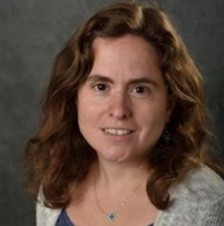Jun
02

About this topic:
Modern data analysis and processing tasks typically involve large sets of graph structured data, where the structure carries critical information. Typically, graphs are used as mathematical tools to describe the interactions between the different entities in the system. Characterizing the meso-scale organization, i.e. the community structure, is an important task in network science. Community detection aims to partition the network into sets of nodes that are densely connected internally but sparsely connected to other dense sets of nodes. Most of the current work on community detection focuses on static networks. However, in many contemporary applications, this relatively simple structure cannot capture the diverse nature of the networks, e.g. temporal networks where the structure changes with time and multilayer networks where the nodes may interact through different mechanisms. Therefore, there is a need to develop community detection methods for these high dimensional networks. In this talk, the presenter will present matrix and tensor factorization methods to detect the community structure in temporal and multilayer networks. The proposed approaches formulate community detection as regularized matrix/tensor decomposition. Different applications of this framework for analyzing high dimensional social and biological networks will be highlighted.
About the presenter:

Selin Aviyente received the B.S. degree with high honors in electrical and electronics engineering from Bogazici University, Istanbul in 1997 and received the M.S. and Ph.D. degrees, both in electrical engineering: systems, from the University of Michigan, Ann Arbor, in 1999 and 2002, respectively.
She is currently a Professor in the Departments of Electrical and Computer Engineering and Biomedical Engineering at Michigan State University since 2002. Her research focuses on the theory and applications of time-frequency analysis, machine learning, and signal and information processing over networks. Apart from pursuing fundamental research, she has also worked on using existing tools to define and solve new problems, particularly in the area of brain connectomics.
Dr. Aviyente is the recipient of a 2005 Withrow Teaching Excellence Award, a 2008 NSF CAREER Award and 2021 Withrow Excellence in Diversity Award. She has served as the chair of IEEE Signal Processing Society Bioimaging and Signal Processing Technical Committee from 2022-23. Currently, she’s serving on the Steering Committees of IEEE SPS Data Science Initiative and IEEE BRAIN. She’s currently Area Editor for Special Issues for IEEE Signal Processing Magazine, Associate Editor for IEEE Open Journal of Signal Processing and IEEE Transactions on Information Theory. She’s serving on the organizing committees of multiple IEEE conferences including as the technical co-chair of IEEE International Workshop on Machine Learning for Signal Processing 2025.
